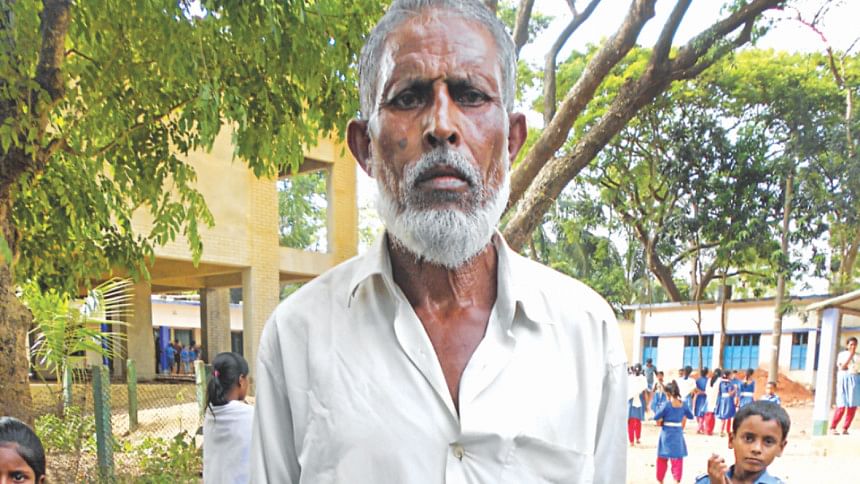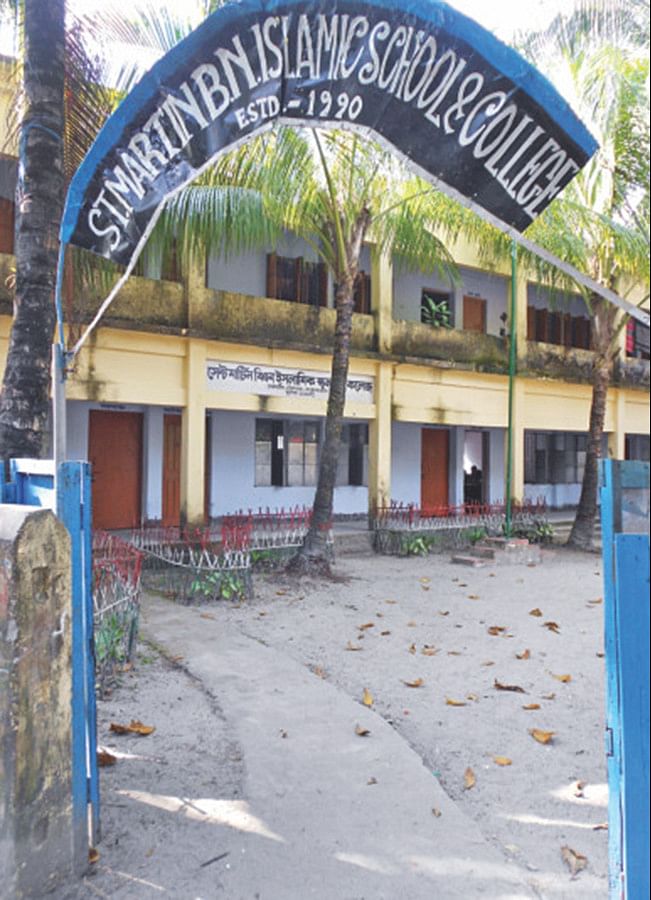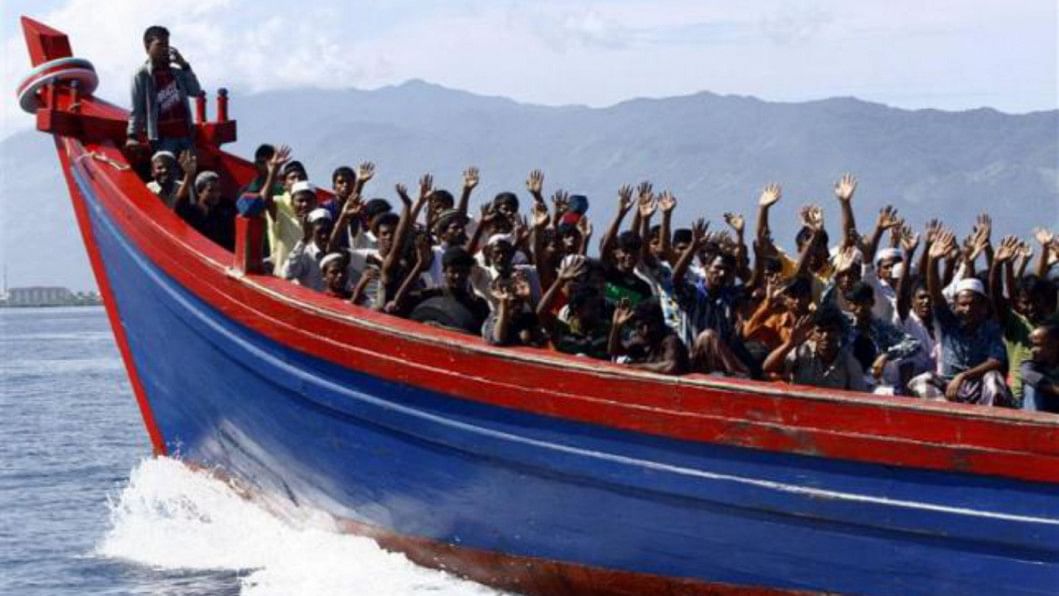Kidnapped, treated like slaves of past
Emran Hossain and Mohammad Ali Zinnat did an extensive investigation into human trafficking from Bangladesh to Malaysia. For over three months, they carried out a thorough research, interviewed trafficking victims, brokers and rights groups, and travelled to the southeastern coastal areas before reporting on the clandestine crime that brings to mind the horror of slave trade of the past.
The two apart, Porimol Palma and Belal Hossain Biplob tried to find out the reasons jobseekers are so easily lured into such a dangerous journey and the ways to fight the crime. Stay with The Daily Star as we uncover the modern-day slave trade of transnational syndicates in the Dark Triangle.
He was bound the way slaves used to be bound centuries ago.
"My arms and legs were tied in such a way that it was impossible for me even to change sides without help," said Jewel Barua, who was abducted and held captive by human traffickers in November 2013.
Read all stories of "Dark Triangle" series-
- Slave Trade Booms In Dark Triangle
- Kidnapped, treated like slaves of past
- 'MALAYSIA AIRPORTS' in Teknaf
- Sailing off into hell
- Illegally driven as legally restricted
- One broker an upazila's woe
- Kidnapped, turned into slaves of past
The 22-year-old man, along with 13 others, was kept confined to a shack for a day in Teknaf's Noapara before he was sent to Malaysia as slave labour through the Bay of Bengal via Thailand.
Carrying a stick, a man always stood guard inside the shack, and hit them whenever they tried to talk with each other.
"We were untied only once a day for having a meagre diet of bread and flattened rice," said Jewel, who works at a mechanical workshop.

"You must finish the meal in 10 minutes ... don't even think of refusing it. Your death means a big financial loss to us," Jewel quoted the guard as saying.
The captives felt so miserable that they begged the captors to send them to Malaysia instead of torturing them.

"We told the guard that if we were to die, we would prefer to perish in the sea. Death there would be much better than being tied and beaten this way," said Jewel.
He and the other 13 abductees were bundled into a boat that left Teknaf's Kochubuniya for Thailand on November 31, 2013.
Jewel was rescued from a Thai jungle on January 26 last year, while the fate of the other 13 is still unknown.
Investigations have revealed that floating labourers, mostly for construction and cultivation, fall victims to abduction. Human traffickers use various tricks to lure people into their traps.
Jewel's neighbour Anancha Barua tricked him into travelling to Noapara, saying one of his friends there was looking for a mechanic for fixing machines.
Jewel took a three-hour bus ride from his home in Ukhia, and fell straight into the traffickers' trap.
In a similar way, human traffickers tricked Mohammad Ismail, a house painter in Ukhia, promising him higher pay.
Ismail's friend Osman told him to see a person in Teknaf for getting work.
As he went to the address provided by Osman, several traffickers lurking in there beat him up and kept him confined for days.
Aged 23, Ismail was forced into a boat to Thailand in early 2013. Fortunately, he was rescued by Thai police in January last year.
The story of Afaz Uddin, a farmer in Ukhia, was a bit different.

A person named Jamal, whom Afaz knew for six months, invited him to his house in Teknaf's Noapara.
Once the farmer arrived at Jamal's house, he was beaten and held captive. Later, he was sold to traffickers for Tk 30,000.
What is of great concern is that a section of these victims are children. One example is the abduction of two Madrasa students by human traffickers in Teknaf.
Ibrahim and Yusuf, both students of Al-jamia Al-Ashrafia Kashemul Ulum Madrasa, were lured into a trap by their classmate Mohammad Ali, 15.
Ali gave them false hopes of becoming rich, saying all they needed to do was take a sea voyage to Malaysia and work there for only a few years.
As planned, Ali took the two to the house of broker Mohammad Hossain on November 14. Ali got Tk 40,000 from Hossain for handing over his two classmates to him.
Hossain then hired a CNG-run auto-rickshaw and brought the boys to the house of human trafficker Khuilla Mia at Quainchhori in Teknaf.
"I sensed trouble the moment I entered Khuilla's house around 7:00pm that day," said Ibrahim.
When Ibrahim told Khuilla that he was no longer interested in travelling to Malaysia, the trafficker and his accomplices beat him up.
They then kept both the boys confined to the shack.
"I screamed, kicked the door of the house, and eventually made an escape," said Ibrahim.
While running away, he found a shop, and phoned his father Faridul Alam, a village doctor, for help.
But soon Khuilla and his cohorts chased him down and took him back to confinement around 8:00pm. They roughed him up and threatened to kill him.

On information from Ibrahim's father, a team of Border Guard Bangladesh raided Khuilla's house about three hours later, and rescued the two boys.
Making false promises, human traffickers trapped another boy, Mohammad Ismail, a seventh-grade student of Goyalmara Dakhil Madrasa, in Ukhia in September last year.
The 17-year-old was tricked by his neighbours Shafi Alam and Ramzan Ali, who took him to a house in Paschim Sonapara by a CNG-run auto-rickshaw on November 9 to send him to Malaysia as slave labour.
Ismail's mother Monwara Begum came to know about it from neighbours.
Three days later, the boy's parents got a phone call from the traffickers, who asked them to pay the duo a ransom of Tk 50,000 to get their son back.
The cell phone, used for making the call, was found switched off since then.
Finally, Ismail's father Jafar Alam informed the police about it on November 22, and filed an abduction case against Shafi and Ramzan.
Nothing could yet be known about the boy's fate.
The cases of abduction have given rise to a sense of insecurity among coastal people.
Mohammad Alam, a shopkeeper at St Martin's Island, sensed that fear recently.
"I went to Teknaf for buying goods for my grocery shop. It was already dark when I reached there," said Alam.
"I didn't dare go out of the hotel the whole evening and night. I was afraid that I could be abducted if I went out after dark," he said.

 For all latest news, follow The Daily Star's Google News channel.
For all latest news, follow The Daily Star's Google News channel. 

Comments